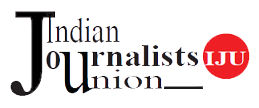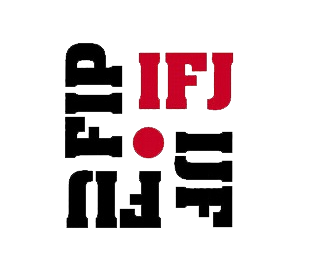~Geetartha Pathak
Refuting the charges of the Opposition, Arun Jaitley, the Union Finance minister, said on the occasion of National Press Day on November 16 that the NDA government is not curbing free speech. With multiple media platforms now available on and off the net, nobody can seriously complain of their free speech being in danger, said the Finance minister. He said if the Emergency was ever to be re-imposed it would collapse as technology did not permit press censorship.
Contrary to the views of the Union Finance minister, Arun Shourie, the former Union minister under Vajpayee government said that ex-Prime minister Indira Gandhi had a "great sense of remorse" for imposing Emergency, but the present situation was "graver" than it was in 1975-77.
With advancement of technology, particularly in the IT sector, now it is not possible to impose 1975-77 type of Emergency, but boom in technology has also brought sophisticated method of gagging free speech and freedom of media. Several attempts were made during last four-and-half years by the NDA government by inviting tender to involve private firms to monitor social media and the internet. While almost all the governments at the Centre and the States, in varying degrees, try to muzzle free speech or physically intimidate media persons, what is fundamentally different under the Modi government is the wider climate of intolerance fostered by the provocative combination of religion and nationalism aided by the State.
In its letter, on July 3, Reporters Sans Frontiers (RSF) Secretary-General, Christophe Deloire, wrote to Indian Prime minister Narendra modi that "in the first six months of 2018, at least as many reporters were killed as for the whole of 2017, while hate speech directed toward journalists has increased massively, causing serious concern for their safety". With the recent killings of two journalists in the month of October, one in Chhattisgarh and another in Jharkhand seven journalists have been killed so far in this year.
The government both at the Centre and at some of the States are desperately trying to control media organizations by withholding advertisements, blocking transmission of news channels by pressurizing cable operators, stopping professional facilities and worse exerting pressure through misuse of investigating and enforcement agencies. Addressing a gathering at the National Press Day celebrations in New Delhi, the Union Finance minster Jaitley said that the "greatest challenge" to the media in a free society is how it retains its own credibility so that it continues to become a maker of public opinion. If we take into account the above circumstances and if retaining credibility by media is the greatest challenge then the challenge has come from none other than the government.
Other estates of democracy than the fourth the –media -= are also equally under grave threat under the present regime. Planning Commission which was established on 15 March 1950 and was crucial for planning and development of the country since then was dissolved and replaced by Niti Ayog, which has no power to impose policies.
The BJP government tried to influence the appointment and transfer of judges through the National Judicial Appointment Commission (NJAC). However it failed as a five-member constitution bench of the Supreme Court struck down the NJAC by a majority of 4:1 in 2015.The government thereafter has tried to influence the judiciary by many ways. Four senior judges had to arrange a historic press conference bringing in public domain the allegations against the then Chief Justice of India. The four judges said that democracy would fail, if judiciary failed to stand up to the political executive.
Annoyed at the assertive role of Indian judiciary in defending democracy the Finance minister Arun Jaitley lamented in the Rajya Sabha on 11 may, 2016 that the judiciary has been encroaching on the domain of legislature and executive. He said "Step by step, brick by brick, the edifice of India's legislature is being destroyed."
Arun Shourie has rightly said that we are helplessly watching systematic decline and weakening of all our institutions. We are witnessing the collapse of the highest investigating body of the country, the CBI. The Reserve Bank of India is under unprecedented pressure to toe the political line of the modi government by invoking Section 7 of the RBI Act. Right to information is derived from the right to free speech and opinion enshrined in Article 19 of the Indian Constitution. Never mind the promise made by Narendra Modi as the Prime ministerial candidate in the 2014 Lok Sabha elections of paying Rupees fifteen lakh to each family by bringing back the black money stashed in the foreign banks by the Indian black money holders; even the names of the black money holders collected from the tax heavens were not disclosed to the public.
Now the Central Information Commission (CIC) has admonished the Prime Minister's Office (PMO) and RBI for not complying with its directive for releasing the list of willful defaulters and former RBI Governor Raghuram Rajan's letter on bad loans. "It is against the RTI Act, the collective intention of Parliament, an affront to democracy, reflecting disrespect to the Supreme Court's directions in RBI vs Jayantilal N Mistry case" - the Central Information Commissioner Sridhar Acharyulu berated. If we look at the present ecology of free speech, freedom of media and right to information in our country we will see the ominous portent of beginning of a totalitarian State.
The only silver lining amid the dark clouds is the coming 2019 parliamentary elections when people will be able to get an opportunity to reshape the Indian democracy from its present perilous state.




